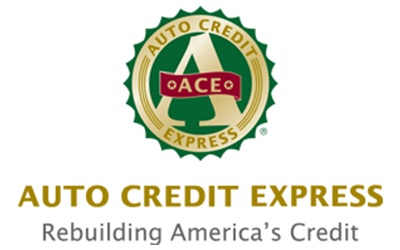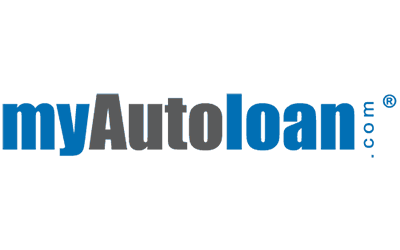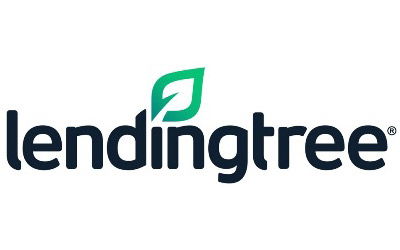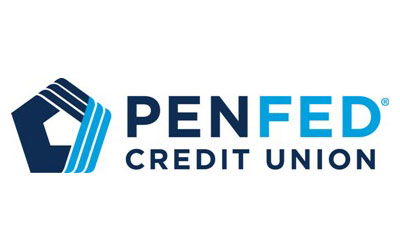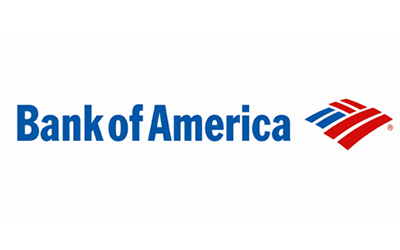If you have bad credit, then finding a loan of any kind can be difficult. However, although it can be frustrating to secure a loan with bad credit, it is entirely possible.

One way to improve your chances of being approved for the loan you need is to provide collateral for the loan. Collateral has been around as long as people have been lending money to other people.
The collateral you offer to the lender secures the loan if you are unable to repay the debt.
Some more traditional forms of collateral are your home or vehicle. Generally, lenders accept cars as collateral only if you have a substantial amount of equity in your car. However, you may be able to get approved for a personal loan by providing collateral in other ways.
Let’s dive into the best options to secure a loan with collateral if you have bad credit.
Getting a Collateral Loan with Bad Credit
Although you can get an unsecured personal loan without collateral, you may find it easier to get approved with poor credit if you provide collateral. You may also get a lower interest rate with collateral, but it will still probably be higher than if you had good or excellent credit.
If you have decided that providing collateral is the best path for you, you have options. You can use your vehicle, savings account, or CD for some secured personal loans. The requirements for collateral will vary based on the lender and your unique situation.
Here are a few of the best lenders that offer secured personal loans.
1. OneMain Financial
Since 1912, OneMain Financial has been providing bad credit personal loans. Loan amounts range between $1,500 and $25,000 with a typical APR range between 25.10% and 36.00%
OneMain looks at your credit history. However, they are more interested in the collateral you can put up for secured loans. With OneMain, you can use a car, truck, camper, RV, or motorcycle as collateral for your secured loan.
OneMain requires you to visit a physical branch to discuss your loan options with a professional and bring in certain documents.
Then, after they fund your loan, you will have various payment options to make your life easier, including through an app, through the mail, at a physical branch, and some Walmart locations.
Check out our full review of OneMain Financial here.
2. Wells Fargo
Wells Fargo is a mainstay in the American banking industry. If you currently have a savings account or CD account held at Wells Fargo, then you may be able to secure your personal loan with either of those accounts.
With Wells Fargo, you may be able to lower your APR for a secured personal loan if you put up your Wells Fargo savings account or CD as collateral.
Although the collateral will not necessarily improve your chances of being approved for the secured loan, it can get you better loan terms and a higher loan amount.
The bank offers personal loans with loan amounts ranging between $3,000 and $100,000.
Use Your Car as Collateral for a Loan
If you have a vehicle on hand, then you have another way to secure a loan. Instead of pursuing a secured personal loan, you can apply for a cash-out refinancing or car equity line of credit for your vehicle.
With a cash-out refinance, you can refinance your auto loan for more than you owe on the vehicle. However, you cannot obtain a loan for more than the total equity you have in the car. For example, if you owe $5,000 on a car worth $15,000, then you may be able to cash out refinance for up to $10,000 with certain lenders.
Typically, lenders require that your car is in good condition with a minimal number of miles to qualify for this type of secured loan. Plus, you’ll need to have some time left on your current auto loan.
Below are some online lenders that may be able to work with your bad credit if you have a vehicle as collateral.
3. Auto Credit Express
Since 1999, Auto Credit Express has worked with thousands of borrowers to secure cash-out auto refinances. The company has a quick prequalification form that can help you determine whether you should apply within seconds.
The basic qualifications are that you are bringing in at least $1,500 a month. Plus, you’ll need to be able to prove steady employment for at least one year.
Auto Credit Express may be able to connect you to a lender and a loan offer within minutes. If you would like to learn more about Auto Credit Express, then read our full review here.
4. Car.Loan.com
Car.Loan.com works to match online lenders and borrowers that are able to work together. Since 1994, the company has been working with borrowers with both good and bad credit scores.
Car.Loan.com can connect you to a lender willing to work with you in minutes after a quick prequalification process. Once they connect you with a lender, you need to have proof of income, insurance, identity, and residence on hand to move forward.
Check out our full review of Car.Loan.com here.
5. MyAutoLoan
MyAutoLoan operates as a matching service. With just one application, you can receive multiple offers in just minutes.
Before you apply, make sure that you have a credit score of 500 or higher. Also, you will need an income of $1,500 a month to qualify. The interest rates on refinancing can vary depending on your car and your financial situation.
Find out more about MyAutoLoan.com in our full review here.
Use Your Home as Collateral for a Loan
Although using your vehicle as collateral is one way to obtain a secured loan, it may not be the most valuable asset you hold. For example, if you own your home, it can act as collateral for either a cash-out refinance or a home equity line of credit.
You have many options for home equity loans, but these are some of our favorites.
6. LendingTree
LendingTree offers a matching service to refinance options that will allow you to use your home equity as collateral for an immediate loan.
The platform has hundreds of lender partners that it works with to find the best option available for you. Within a few minutes, you’ll have offers from various partners.
7. PenFed
PenFed offers home equity lines of credit up to $400,000 based on the value of your property.
The limit to your loan will depend on the loan-to-value ratio on your home, which can be up to 90%. Depending on what you need the money for, that high limit can be a life-saver.
8. Quicken Loans
Quicken Loans works with borrowers of all credit types to provide cash-out refinances. In addition, the company has a mobile-friendly app that allows you to walk through the process quickly.
As the largest provider of mortgages in the nation, it is a company that you can be comfortable working with.
Find out more about Quicken Loans in our full review here.
9. Bank of America
Bank of America has over 5,000 branches around the U.S., which makes them an excellent option for your home equity loan.
The bank offers three-year loan terms that can allow you to save money over longer-term offers. With great customer service and transparent disclosure of all fees, it is a company you can feel comfortable doing business with.
What is considered bad credit?
Your credit score, and by extension your credit history, will be the most relevant consideration when you apply for a loan. If you’re wondering what exactly classifies as ‘bad credit’, here’s a quick run through for both FICO and Vantage credit scoring:
FICO Score
- Poor Credit – 300 to 579
- Fair Credit – 580 to 669
- Good Credit – 670 to 739
- Very Good Credit – 740 to 799
- Excellent Credit – 800 to 850
VantageScore
- Very Poor Credit – 300 to 499
- Poor Credit – 500 to 600
- Fair Credit – 601 to 660
- Good Credit – 661 to 780
- Excellent Credit – 781 to 850
‘Bad credit’ is generally considered anywhere below 600. It’s always preferable to try improving your credit score before shopping for a loan because even a slight difference can matter.
Furthermore, keep in mind that individual lenders and creditors will vary when it comes to the definitions of good or bad credit. For that reason alone, it can be worthwhile to take your time and compare multiple lenders, even if your credit score is poor.
What is a secured loan?
A secured loan is a personal loan backed by an asset, such as your home or car. The lender can seize your assets if you cannot pay back your loan. Secured loans typically have lower interest rates than unsecured loans because the lender can recoup money through the asset.
Secured loans are a suitable option for those with poor credit because the collateral acts as a guarantee for the lender. When applying for an unsecured loan, the creditor obviously wants to know that you can be trusted to pay the loan in full, and on time. This is why your credit score, and credit history, is so important.
With secured loans, however, your credit score is less significant.
What can you use to secure a personal loan?
Secured personal loans require collateral to act as a protective measure for the lender. If you fail to make your payments, the lender can seize the collateral to repay the loan. The most common forms of collateral include:
Your Car
Most online secured personal loans require you to secure the loan with a vehicle. Also known as auto equity loans, they allow you to borrow money against the value of your car.
A lender will require you to insure the vehicle against physical damage and theft. They will also perform a thorough appraisal of the vehicle before deciding on your loan amount. You can borrow as much as 80% of the car’s value.
Your Home
You can use your home as collateral to get a secured personal loan, but be aware that you’re putting the roof over your head at stake. A secured lender will require you to take out an additional homeowner’s insurance policy to protect the value of your home. You can borrow up to 85% of your home’s value with a secured personal loan.
A Savings Account
Some lenders accept savings accounts as collateral for secured personal loans. This is a less risky option for the lender, as they can access your funds if you don’t make your payments. You can borrow any amount of money up to the balance in your savings account.
Where Can You Get a Secured Personal Loan?
Below are different lender options where you can obtain a secured personal loan:
Banks
Most banks, including U.S. Bank, the nation’s largest bank, offer secured personal loans to their customers. Banks allow their customers to use their assets, including deposit accounts, to secure personal loans.
Borrowers who use their savings accounts as collateral cannot access the money for the loan duration. It’s also common for these lenders to charge origination fees.
Credit Unions
Credit unions are nonprofit entities that promote the financial well-being of their members. Many consumers with poor credit turn to credit unions first because they offer financial help at more affordable rates than banks.
Credit unions also offer CD-secured loans to help their customers build credit. Federal credit unions offer a maximum APR of 18%, but there may be extra application fees.
Online Lenders
Online lenders have made it easy to apply for a secured personal loan from the comfort of your home. Most online lenders allow you to check your rate on an unsecured loan without affecting your credit.
Borrowers with poor or fair credit scores can take advantage of this type of loan without having to email documents or visit banks. Most online loans carry a maximum APR of 36%. The loan amount depends on your credit and the value of your collateral.
Secured Loans from Credit Unions
Credit unions are an excellent option for secured loans. Credit unions provide loans and other financial products and services to their members at lower rates than traditional banks.
Here are two excellent credit union opinions for secured loans.
First Tech Credit Union
First Tech offers flexible loans with reasonable rates for borrowers seeking a customized debt consolidation loan with quick funding. There are no origination or prepayment fees. You can use the personal loan for various purposes, including consolidating debt, home improvements, and covering major expenses.
For a period of two to seven years, you can borrow from $500 to $50,000. To qualify for a personal loan from First Tech, you need a minimum credit score of 660 and a steady source of income.
Navy Federal Credit Union
Are you in need of financing to fund your home improvement project? Your best bet is Navy Federal Credit Union. They offer a wide range of loan amounts and repayment terms for members with a fair credit score.
You can borrow $250 up to $50,000 for a term of one to five years at competitive rates. The APR rate ranges between 7.49-18.00%, depending on your credit score and loan amount.
Secured Loans from Online Lenders
With increased competition in the lending space, online lenders are offering some of the most competitive secured loan rates currently available. In addition, these lenders cater to individuals with various credit scores, so you don’t need excellent credit to get a reasonable rate.
Our top picks for the best online lenders are:
Upgrade
Upgrade secured personal loans have many consumer-friendly features and discounts. They have a minimum credit score of 560 to cater to fair and bad credit borrowers. In addition, you can qualify for a lower rate on the loan if you secure it with a vehicle.
The rate offered will depend on your credit usage, credit score, and loan term. Upgrade also allows secured and joint loans and offers a 0.5% discount for setting up autopay. You can borrow amounts between $1,000 and $50,000 for repayment terms ranging from two to seven years.
However, Upgrade charges a 2.9%-8% origination fee that is deducted from the loan proceeds. With Upgrade, you can apply for a personal loan online and have it funded in as little as one business day.
Best Egg
Best Egg is another online lender that offers outstanding secured personal loans for borrowers with a credit score as low as 600. You can access loan amounts of between $2,000 to $50,000, and loan terms are from three to five years.
Best Egg charges an origination fee of 0.99%-5.99%, and APR rates range from 5.99%-29.99%. To be eligible for this loan, you must provide proof of stable income, a valid U.S. address, and a Social Security number.
How to Get a Secured Loan
While there are several types of secured loan available, the application process will generally look the same for all of them. Finding the best loan possible for you, however, can take some time.
Check Credit Score & History
It’s vital to keep tabs on your credit situation, especially before seeking a personal loan. Checking your credit history for errors could help you earn a quick boost to your credit score. You can also get a better idea of what rates will be available to you if you know your credit score beforehand.
Even when applying for a secured loan, most lenders will want to check your credit score and history. So, it’s a good idea to review and clean things up wherever possible. You are entitled to one free credit report from each of the three major credit bureaus each year.
Seek Specialized Lenders
When you’re looking for a secured loan with a bad credit score, it’s best to focus on lenders who specialize in bad credit loans. There are plenty out there who will use more than just your credit score to determine your loan rate.
This will make your odds of qualifying for a good loan far better, depending on your financial situation. For example, in addition to considering your credit score, certain lenders will also consider your income, employment history and education level.
Pre-qualify Online
Pre-qualification is an essential aspect of loan shopping today. The value here is that you can easily gauge your chances of approval, and also the rates you might be eligible for. Most online lenders let you pre-qualify without a hard credit inquiry.
Pre-qualification is a great way to assess the market relative to your credit and gather quotes that you can use to negotiate with.
Compare Offers
After you’ve pre-qualified with several lenders, it’s important to take the time necessary to compare your offers. Comparing loan offers can be daunting, but it’s much easier when you’ve got a clear idea of your needs and expectations.
Check out the section below where we dive into more detail on how to compare loan offers.
Submit an Application
Once you’ve compared your offers and made a choice, you can proceed with a formal application. This will usually trigger a hard credit inquiry, temporarily lowering your credit score.
Depending on the lender, you might need to wait a couple of days to receive a decision. If your application is denied, most lenders will at least let you know where you fell short.
Pros of Collateral Loans
Easier Loan Approval
As we’ve mentioned, landing a secured or collateral loan is easier for those with poor credit score. Compared to a regular unsecured loan, your credit history won’t be as much of a factor in any approval decision.
If your credit isn’t great, or if your credit history is thin, you’ll find you’ve got more borrowing options with a collateral loan.
Lower Interest Rates
From the perspective of a lender, collateral loans are typically considered less risky than unsecured loans. As a result, interest rates for secured loans will be lower than those for unsecured loans.
That said, if your credit score is poor, you’ll still face a relatively high interest rate on any loan.
Higher Loan Amounts
Because a collateral loan is secured with an asset, lenders are confident about recouping funds in the event of a default. Because of this, there may be lenders willing to lend relatively high amounts of money.
With a HELOC, for example, consumers with excellent credit could borrow up to 80% of the value of their home.
Credit Building
For those with a thin credit history, secured loans are a great way to start building credit and improving your score. The key here is, as always, to ensure you take on a personal loan with manageable repayment terms.
Once you can make timely monthly payments, you should see your credit score increase within months. Remember to check that your lender will report your payments to the main credit bureaus.
Cons of Collateral Loans
Longer Application Process
Applying for a secured loan will be a bit more complicated than an unsecured loan. That’s because any lender will need to value the asset(s) used to secure the loan. This involves providing more documentation on your behalf.
The exact length of the application process will vary between lenders, but you’re looking at several weeks on average.
Risk of Property Loss
It cannot be overstated that the consequences of defaulting on a secured loan are serious. With a collateral loan, if you fail to make your minimum monthly payments on time, the lender may eventually repossess the asset that you used to secure the loan.
The exact details will depend on the loan agreement you signed, but it’s important to realize the risks involved when considering a secured loan.
How to Compare Collateral Loans
Knowing what’s involved in a loan offer is vital to comparing them well. Moreover, it really helps to be clear about what your needs and expectations are with any loan. Even if your credit is bad, you can still find room to negotiate and benefit from being informed.
Compare APR
The foremost detail for any loan is the annual percentage rate (APR). This is what your lender charges you for taking out a loan, including the interest rate and all fees.
Because of this, the APR gives a more comprehensive picture of how much your loan will actually cost. The lower the APR, the better. When it comes to comparing offers, the APR should carry the most weight.
Consider Fees
Next to APR, fees are an important aspect for any loan. Not all lenders will be completely clear and upfront about the fees they charge, so make sure you look over everything carefully.
Many loan fees are common and charged across the board, but others will vary between lenders. Below is a brief look at the most common fees:
Late payment fee
All lenders will stipulate various late payment fees, but comparing the severity of these is important. Don’t overlook this aspect of your loan offer just because you’re certain you can make the payments on time.
Loan origination fee
The loan origination fee is designed to cover the administrative costs of processing your loan. These are extremely common, and can come in at anywhere between 1% to 8% of the total amount of the loan.
Prepayment penalty
Prepayment penalties are also popular with lenders. Again, it’s good to be aware of the territory here, no matter how sure you are that you won’t incur this penalty.
Review Loan Terms
One of the most important aspects of how successful your loan will turn out is the loan term. This is the agreed upon period during which you will repay the loan. There is a lot to weigh up when considering how long you want your repayment terms to extend.
If your loan term is longer, you’ll have to weigh a higher APR against smaller monthly payments. Plus, you will pay more in total interest over the life of a loan. If you can manage larger monthly payments and a shorter loan term, then better APR rates may be available to you.
How to Recognize Loan Scams
In an environment where financial scams are unfortunately common, it’s crucial to be vigilant, especially when seeking loans with bad credit. Scammers often target those in dire need, making it essential to know how to distinguish legitimate loan offers from deceptive ones.
Credit Check Reality
Even when lenders advertise ‘no credit check’ loans, they usually perform some level of credit history examination. A legitimate lender typically conducts at least a soft credit check before granting a loan. Be wary of lenders who promise loan approval without any form of credit verification.
Fee Structure and Upfront Payments
Legitimate lenders might charge various fees, like origination fees, but these are usually included in the loan’s overall cost. A major red flag is when a lender asks for fees to be paid upfront, before you receive the loan. This practice is not common among credible financial institutions.
Tactics of Pressure
Scammers often use pressure tactics to rush you into accepting a loan. Whether subtle or aggressive, such tactics are a strong indication of a scam. Legitimate lenders will not pressure you into making quick decisions, even if they offer time-limited specials or rates.
Importance of a Physical Address
A legitimate lender, including online ones, will have a verifiable physical address. Lack of a physical address is a significant warning sign. Always verify a lender’s physical location, typically found on their website, to ensure their legitimacy.
Unsolicited Loan Offers
Be cautious if a lender approaches you first, particularly through online platforms. Scammers frequently target individuals in need of financial help. Remember, authentic lenders do not initiate unsolicited loan offers. Avoid engaging with lenders who contact you first with loan proposals.
Frequently Asked Questions
Can I get a loan with bad credit if I have collateral?
You can be approved for a secured loan even with a bad credit score. In comparison to an unsecured loan, you’ll find relatively better rates and terms available. For those with bad credit, a loan with collateral is one of the best options when you need to borrow money.
What’s the easiest loan to get with bad credit?
The easiest loans to get with bad credit are payday loans or car title loans. However, the easiest loans are not the safest or smartest loans to take on. Secured loans are a much better option for those with bad credit scores.
Are secured personal loans easier to qualify for?
Yes. Secured personal loans are easier to qualify for compared to unsecured loans. Moreover, you might even get a better rate if your credit score is decent.
If you default on your personal loan, the lender is entitled to repossess your collateral to cover their loss. Because the lender is taking on little risk, a secured personal loan is easier to qualify for.
What is the interest rate for secured loans?
While a secured loan can typically offer a lower interest rate, if your credit score is bad, you still won’t have access to the best rates. Secured loan rates average 3% to 36%.
Borrowers with higher credit scores may see rates on the lower end of the spectrum, possibly around 3% to 10%. Those with average credit scores might encounter slightly higher rates, potentially in the range of 10% to 20%.
Borrowers with lower credit scores or those who are seen as higher-risk might face higher interest rates, possibly above 20%.
Can a secured loan build credit?
Absolutely. A well-managed secured loan can help build credit. As long as each monthly payment is reported to the credit bureaus, a secured loan will be a viable option for those looking to build or rebuild credit.
Bottom Line
Providing collateral for a loan may be the best way to obtain a loan with reasonable terms if you have poor credit.
Deciding what to put up as collateral for a loan is a big decision. Although you hope that you can repay the loan on time, things happen. For example, you could lose your job or have another major emergency pop up.
Before you sign for any loan, make sure to understand the terms of the loan. If you cannot repay the loan, the lender may take possession of your collateral. Therefore, only accept a secured loan if you are confident you can repay the debt or are willing to lose your assets.



